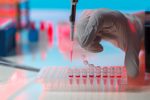Phase 2 Trial of Neuren’s NNZ-2591 Cleared to Start in US, Australia

Neuren Pharmaceuticals has received regulatory approval in the U.S. and Australia to start its Phase 2 trial of NNZ-2591, an investigational therapy for Angelman syndrome.
The study (NCT05011851), which is not yet recruiting, will include up to 20 children, ages 3 to 17, with a confirmed diagnosis of Angelman syndrome. Trial results are expected in early 2023.
With the Human Research Ethics Committee’s approval in Australia, Neuren can initiate clinical testing in Queensland Children’s Hospital/Centre for Children’s Health Research, South Brisbane, Sydney Children’s Hospital, and Austin Health, Victoria, after obtaining separate authorizations from each site.
“This is another important step achieved for the first clinical trial of NNZ-2591 in patients and Neuren’s first in Australia,” Jon Pilcher, CEO of Neuren, said in a press release. “We are very excited to be working closely with the local Angelman syndrome community and are eager to accelerate development of this potential therapy which has shown such promise to date.”
Clearance from the U.S. Food and Drug Administration came through as approval of Neuren’s investigational new drug (IND) application for NNZ-2591 in February. The company also plans to continue testing the therapy for three other neurodevelopmental disorders — Phelan-McDermid syndrome, Pitt Hopkins syndrome, and Prader-Willi syndrome.
“FDA approval of the first IND for NNZ-2591 is a huge step forward in Neuren’s plan to develop NNZ-2591 for four serious neurodevelopmental disorders. The Angelman syndrome Phase 2 trial in Australia has been keenly awaited by the Angelman community and we are very excited to be able to proceed,” Pilcher added in a different press release.
NNZ-2591 is a compound chemically similar to cyclic glycine proline — a small protein found naturally in the brain that is important for the development of nerve cells. The investigational treatment is meant to restore the normal communication between brain cells.
Positive effects of NNZ-2591 were previously shown in preclinical studies involving a mouse model of Angelman syndrome. These included improved cognition and motor function, reduced anxiety, and prevention of seizures.
The safety, tolerability, and pharmacokinetics — movement into, through, and out of the body — of NNZ-2591 were recently investigated in a Phase 1 trial (NCT04379869) in 30 healthy volunteers.
Now, its safety, tolerability, pharmacokinetics, and efficacy will be examined in patients with Angelman syndrome. An oral solution of NNZ-2591 at 50 milligrams per milliliters (mg/mL) will be administered twice a day, at a weight-banded dose for 13 weeks (about three months).
To participate in the trial, patients must have a score of three or higher in the Clinical Global Impression – Severity — a seven-point scale that rates disease severity — the child must be able to swallow the treatment, and caregivers must have sufficient English language skills.
Secondary goals of the study include assessments of how much the patient has improved or worsened using the Angelman syndrome-specific Clinical Global Impression Scale-Overall Improvement, changes in overall quality of life, ability to communicate, behavior, and sleep habits.
Orphan drug designation — a status that provides incentives to promote the development of therapies for rare diseases — was previously granted to Neuren for NNZ-2591 to treat Angelman syndrome by the FDA and the European Medicines Agency.








